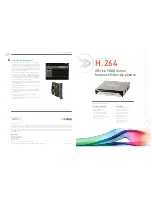
DANGER:
Lead-acid batteries contain hazardous materials. Batteries must be handled,
transported, and recycled or discarded in accordance with federal, state, and local
regulations. Because lead is a toxic substance, lead-acid batteries should be recycled
rather than discarded.
Do not dispose of batteries in a fire, the batteries may explode.
Do not open or mutilate the batteries. Released electrolytes are harmful to the skin and
eyes and may be toxic.
A battery can have a high short circuit current and present a risk of electrical shock. The
following precautions should be observed when working on batteries:
Remove watches, rings, or other metal objects.
Use tools with insulated handles.
Wear rubber gloves and boots.
Do not lay tools or metal parts on top of batteries.
Disconnect charging source prior to connecting or disconnecting battery
terminals.
Determine whether battery is inadvertently grounded. if so, remove the source
of the ground. Contact with any part of a grounded battery can result in
electrical shock. The likelihood of such shock will be reduced if such grounds
are removed during installation and maintenance.
Lead-acid batteries can present a risk of fire because they generate hydrogen
gas. The following procedures should be followed:
– Do not smoke when near batteries.
– Do not cause flame or spark in battery area.
Discharge static electricity from your body before touching batteries by first
touching a grounded surface.
Beghelli U.S.A., 3250 Corporate Way, Miramar, Florida, Tel: (800) 726-4316 Tel: (954) 442-6600 Fax: (954) 442-6677
NOVA
6, 8, 10, 15 & 17KW









































